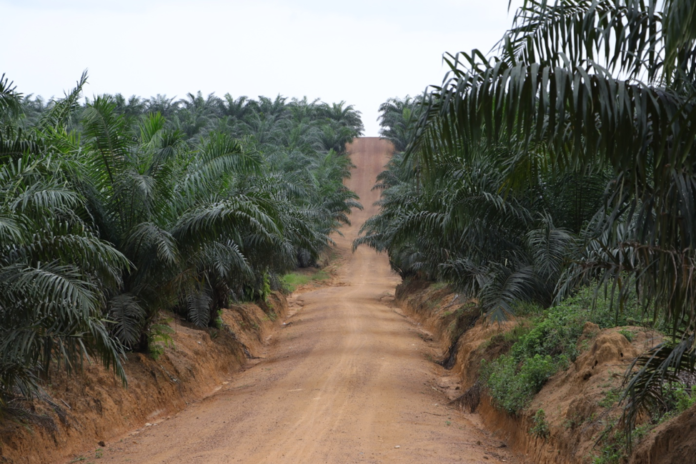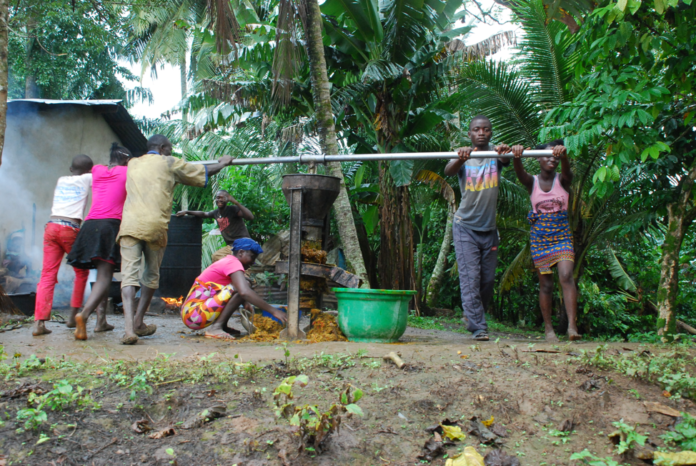The Fair Bank Guide will be published today, but many Dutch financiers are still far from sustainable, according to the cry for help from James G. Otto, program leader Friends of the Earth Liberia, partner of Milieudefensie.
Banner Image: A road passes through Golden Veroleum Liberia’s palm plantation in Sinoe County. The DayLight/Harry Browne
Dutch banks and insurers still finance industrial plantations on a large scale in my country, Liberia. There is no such thing as fair and sustainable banking. These palm oil plantations swallow up the last remaining large tracts of Upper Guinea’s rainforest.
Millions of compatriots have lost their livelihoods because they live off the forest and land. That is why I ask the Dutch government to make these companies and financiers responsible for the environmental damage and human rights violations in Liberia and elsewhere.
Backed by financiers such as Robeco, Rabobank, ABN Amro, FMO (the Dutch development bank) and insurer NN Group, companies have managed to gain access to more than 750,000 hectares – almost five times the province of Utrecht – of our country. The locals have never given permission to use the land, which has often been in the family for generations, for plantations. The land and forest from which they were driven provided their livelihood. Villagers no longer have living space, we can no longer feed our families.
Working with dangerous pesticides
If one of us gets a job on the plantations, we have to work with dangerous pesticides. The working conditions are terrible and the wages are too little to live on. A group of 16 villagers was thrown in jail for more than a year as they protested the confiscation of their land. Farmers who reclaim land are criminalized. Drinking water is being polluted and communities, depending on forests, are losing their source of income.
We have written to and met the Dutch financiers in recent years. They have been told about the destructive consequences of their funding. But they didn’t hear us. Some, such as pension fund PGGM, have renounced controversial companies, others, including Robeco and Rabobank, are not taking any action. Not even after clear evidence of human rights violations and deforestation.
Apparently, they don’t change on their own, this has been going on for over twenty years. The Dutch government must therefore put a stop to this destructive financing. This autumn there is an opportunity to arrange this through the Responsible and Sustainable International Business Act. Create a law that holds companies and the financial sector accountable for human rights violations and environmental damage here and elsewhere.
This opinion was first published by Trouw on October 25, 2021.


